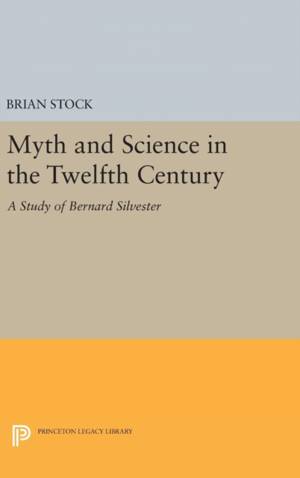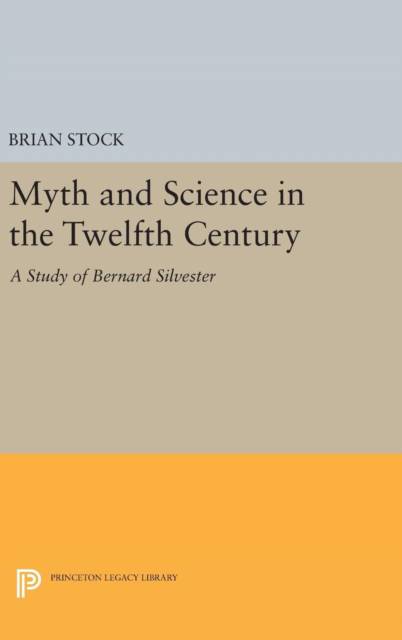
- Retrait gratuit dans votre magasin Club
- 7.000.000 titres dans notre catalogue
- Payer en toute sécurité
- Toujours un magasin près de chez vous
- Retrait gratuit dans votre magasin Club
- 7.000.0000 titres dans notre catalogue
- Payer en toute sécurité
- Toujours un magasin près de chez vous
Description
The Cosmographia of Bernard Silvester was the most important literary myth written between Lucretius and Dante. One of the most widely read books of its time, it was known to authors whose interests were as diverse as those of Vincent of Beauvais, Dante, and Chaucer. Bernard offers one of the most profound versions of a familiar theme in medieval literature, that of man as a microcosm of the universe, with nature as the mediating element between God and the world. Brian Stock's exposition includes many passages from the Cosmographia translated for the first time into English. Arising from the central analysis are several more general themes: among them the recreation by twelfth-century humanists of the languages of myth and science as handed down in the classical tradition; the creation of the world and of man, the chief mythical and cosmographical problem of the period; the development of naturalistic allegory; and Bernard's relation to the "new science" introduced from Greek and Arabic sources.
Originally published in 1972. The Princeton Legacy Library uses the latest print-on-demand technology to again make available previously out-of-print books from the distinguished backlist of Princeton University Press. These editions preserve the original texts of these important books while presenting them in durable paperback and hardcover editions. The goal of the Princeton Legacy Library is to vastly increase access to the rich scholarly heritage found in the thousands of books published by Princeton University Press since its founding in 1905.Spécifications
Parties prenantes
- Auteur(s) :
- Editeur:
Contenu
- Nombre de pages :
- 356
- Langue:
- Anglais
- Collection :
- Tome:
- n° 1310
Caractéristiques
- EAN:
- 9780691646350
- Date de parution :
- 19-04-16
- Format:
- Livre relié
- Format numérique:
- Genaaid
- Dimensions :
- 156 mm x 234 mm
- Poids :
- 671 g

Les avis
Nous publions uniquement les avis qui respectent les conditions requises. Consultez nos conditions pour les avis.






